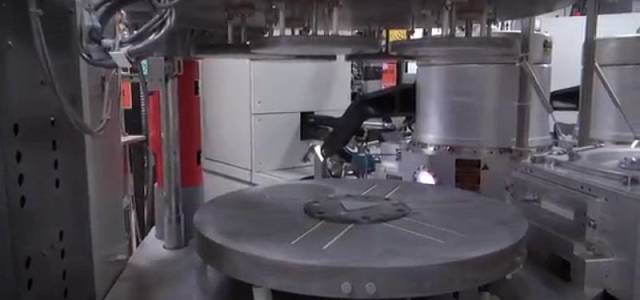
Image source: topwar.ru
The escalation between the United States and China in the field of high technology continues to grow. Washington is acting in the usual manner of sanctions restrictions, thereby trying to at least slow down the development of Chinese technology companies competing with American ones. Bloomberg, citing its own sources, reports that this week Washington intends to impose sanctions on more than thirty Chinese enterprises in this industry. The list also includes the state-owned Yangtze Memory Technologies (YMTC), which is the country's largest manufacturer of semiconductor integrated devices and flash memory chips.
Inclusion in the sanctions list means for Chinese manufacturers that they will not be able to legally purchase American semiconductors and equipment for the production of microcircuits without a special export permit for these products issued by the US Department of Commerce.
These are not the first restrictions imposed by the Biden administration against Chinese manufacturers in the high-tech industry.
In October, the US Department of Commerce imposed restrictions on 28 companies from China in the acquisition of semiconductor chips manufactured using American technologies around the world. Earlier, the US Trade Department ordered 31 Chinese companies, including YMTC, to prove within 60 days that their activities do not threaten US national security by listing them on the list of so-called unverified importers of American products (Unverified List, UVL). At the same time, Beijing has taken a number of steps to help Chinese companies that have fallen under sanctions, at the request of Washington, to organize inspections of the end user of products.
U.S. Commerce Secretary Gina Raimondo said that the sanctions measures are not aimed at weakening the Chinese economy, but should only prevent the use of American technologies to develop China's military potential. Beijing believes that Washington's actions just lead to a global disruption of the supply chain of technological products and thereby hinder the development of emerging economies.
By the way, US restrictive measures against high-tech companies in China create serious problems for European enterprises that actively use Chinese electronic components in production. According to the agreement between Washington and the EU, they are forced to comply with US sanctions, which complicates the already difficult situation regarding the production of competitive products by European companies.
Whether the Chinese leadership will take retaliatory measures to the next round of economic confrontation provoked by the United States will become clear in the near future.

